March 2025
PGP's SCHOOLS PROGRAMME IS AN EDUCATIONAL INITIATIVE AIMED AT RAISING AWARENESS AMONG PUPILS ABOUT AGRICULTURE’S VITAL ROLE AND THE DIVERSE CAREER OPPORTUNITIES IT OFFERS. EDUCATING THE YOUTH ABOUT AGRICULTURE IS CONSIDERED AN IMPORTANT STRATEGY IN THE DISASTER RISK MANAGEMENT TOOLBOX TOWARDS MANAGING THE THREAT TO FOOD SECURITY LEVELS.
In a post on LinkedIn, Mpho Sekati, a sustainable agriculture specialist, mentioned that the average age of South African farmers is 62. This is notably higher than the average age of farmers in many other countries. ‘This trend poses a significant challenge when considering the rising population in South Africa.
‘With an ageing farming population, there is a growing concern about the ability to meet the food and agricultural demands of a rapidly expanding population. The need for succession planning and encouraging younger individuals to pursue careers in agriculture has become increasingly pressing to ensure food security and sustainable agricultural development in South Africa,’ states Sekati.
BRINGING AGRICULTURE TO SCHOOLS
The Schools Programme is a result of a partnership between the Maize Trust and the Agricultural Sector Education Training Authority (AgriSETA), which both fund the programme in different ways and in different areas. This programme emphasises the potential of the youth to significantly impact the agricultural sector in South Africa by encouraging their participation as future farmers or professionals in related fields.
Although Grade 9 pupils were previously the target group, a new direction is now in motion where the world of agriculture is opened to Grade 5 to 7 pupils. Several people have been contracted to do presentations at identified schools in all nine provinces of South Africa. These facilitators visit selected schools to show the DVDs that Grain SA developed to introduce the pupils to all aspects of farming and the value of farming.
The programme components include educational DVDs, which focus on different aspects of agriculture. These informative DVDs are shown throughout the academic year.
STATISTICS
A total of 208 schools were visited between 1 October 2023 and 29 September 2024:
One of the teachers who attended the presentations gave the following feedback about the programme: ‘The visit was very informative. It encouraged children to participate in various careers that play a vital role in their lives. It exposed them to many things that are usually taken for granted. As a teacher, I think programmes of this nature should get more attention.’
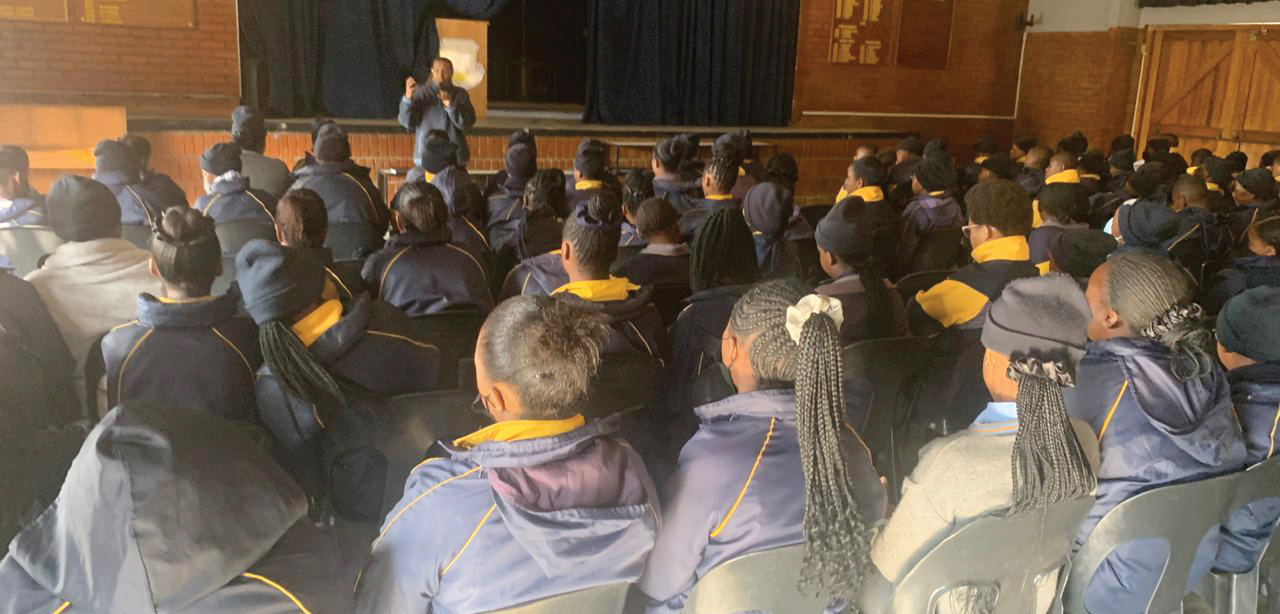
Girls who attended a presentation at Edu College in the Phuthaditjhaba district actively participated in the session. Some of them even stayed behind to ask more questions.
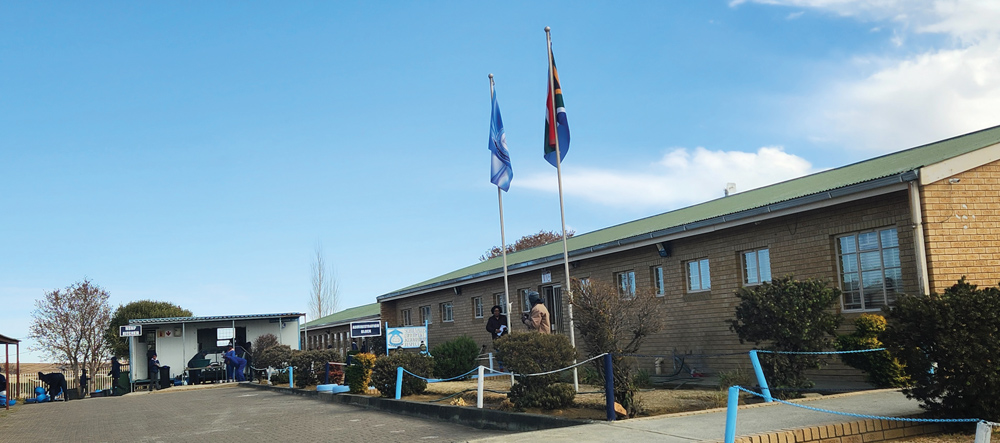
At Thuto Tsebo Full-Service School, the learners were fascinated by the various jobs agriculture has to offer.
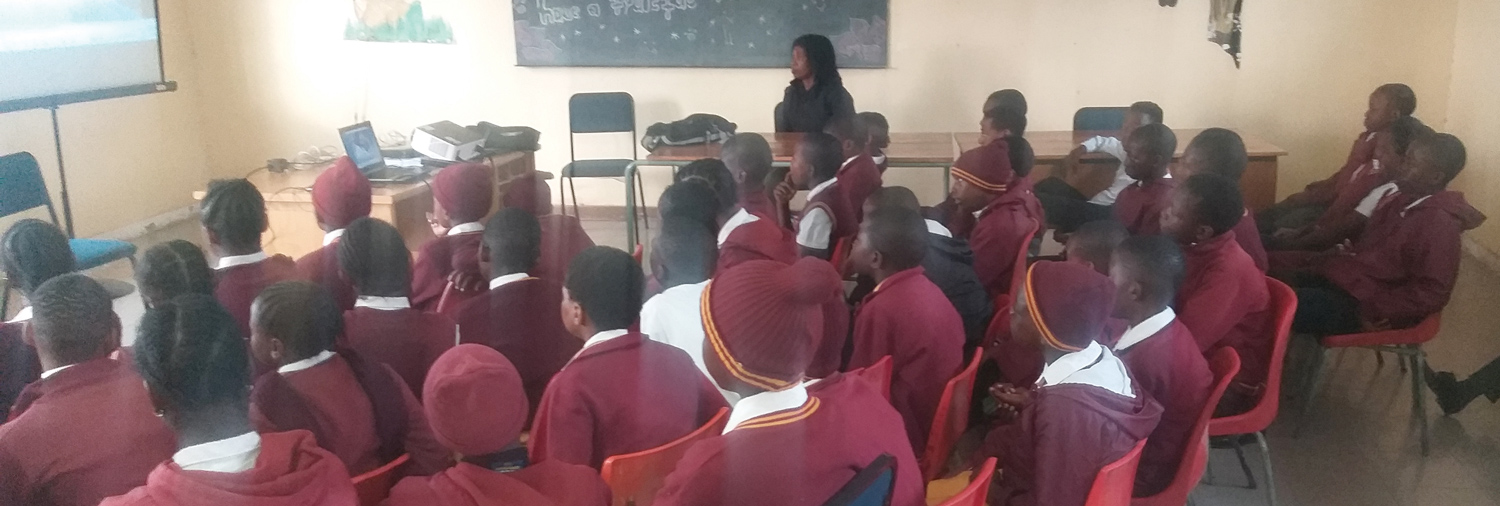
The teachers at Tiga Primary School in Mbombela in Mpumalanga said the presentation made pupils aware of the wonderful career opportunities in the agricultural field.
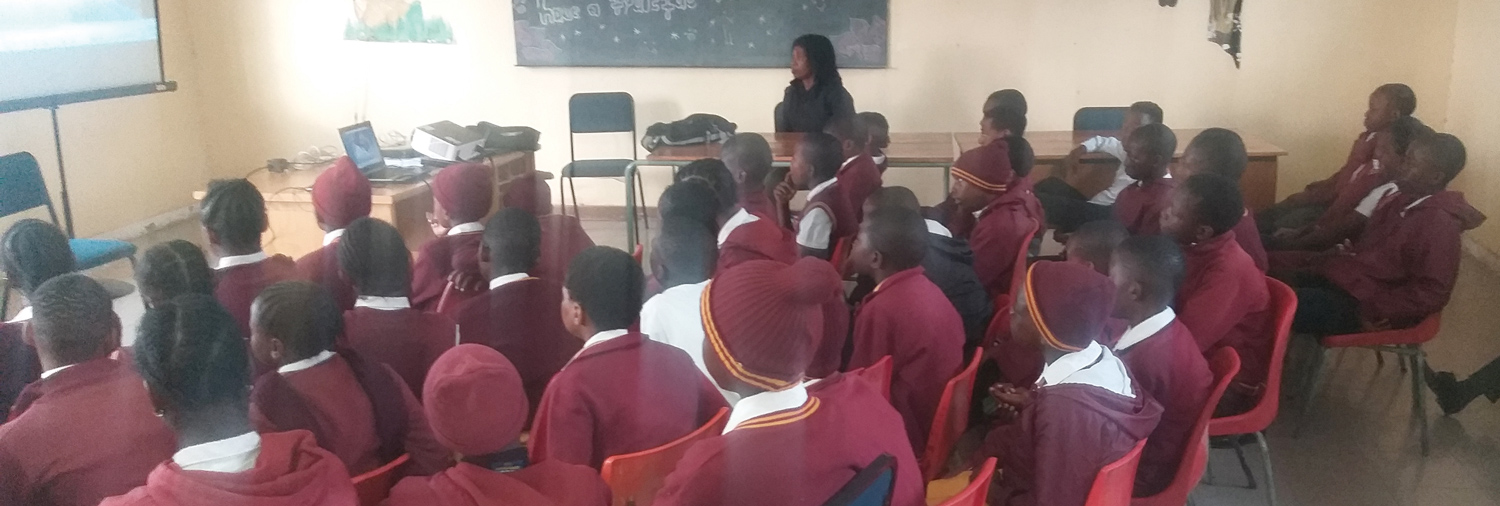
Learners from Emdeni JSS in the Kokstad region said they now realise that agriculture is behind everything they eat and wear.
The Phahama Grain Phakama (PGP) team ensured that all farmers had received their inputs and were planting, with a total of 178 farm visits taking place during December 2024 and the first half of January this year. Visits ranged from four farmers in the Kokstad area to 35 farmers in the Louwsburg region.
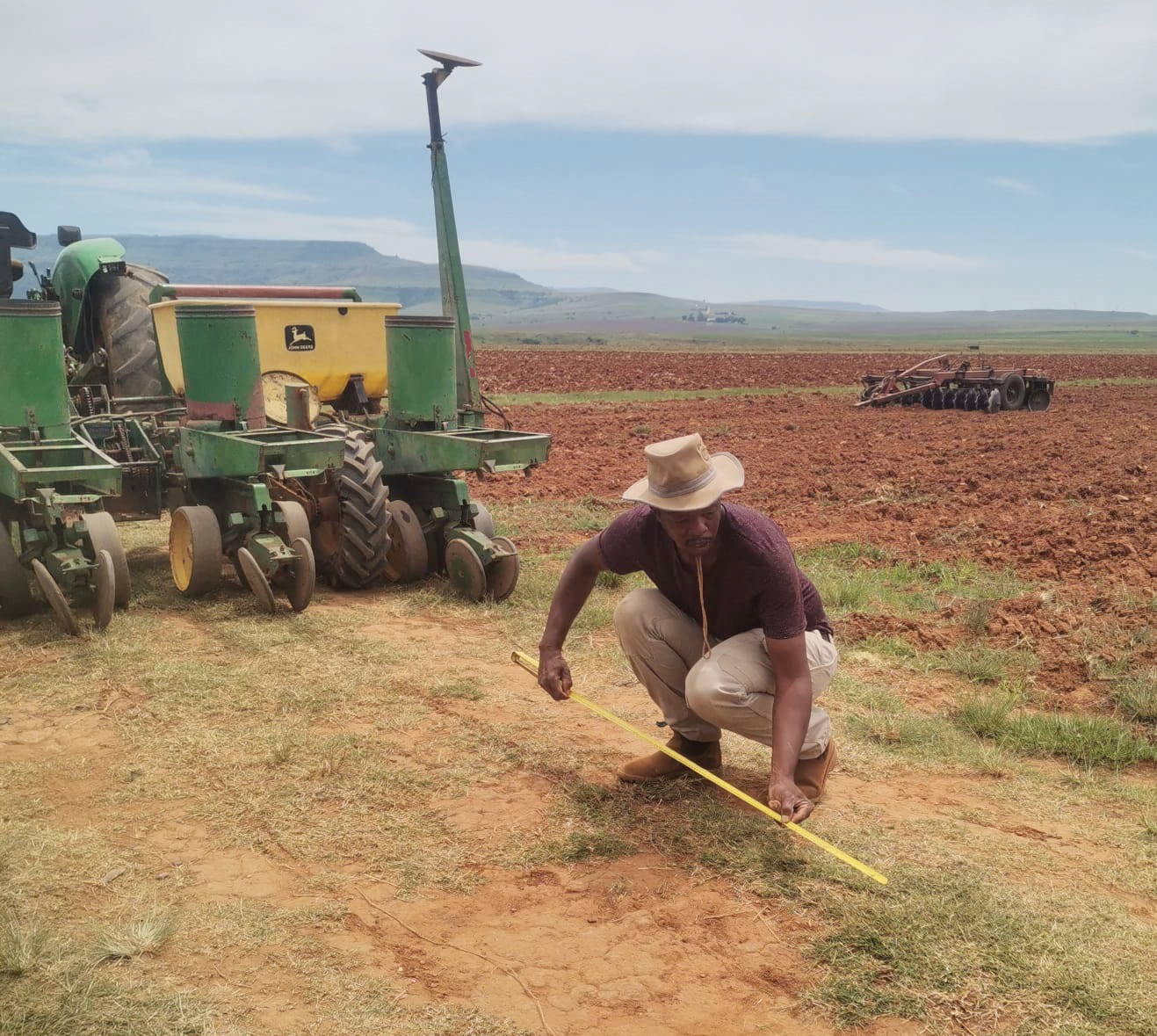
One of the 20 farmers in the Dundee region who received a farm visit is Sanele Mbhele, who is mentored by Paul Wiggill. Sanele has shown a positive response to this year’s training. He successfully calibrated his machinery and mentor Paul is satisfied with the timely planting of his maize.
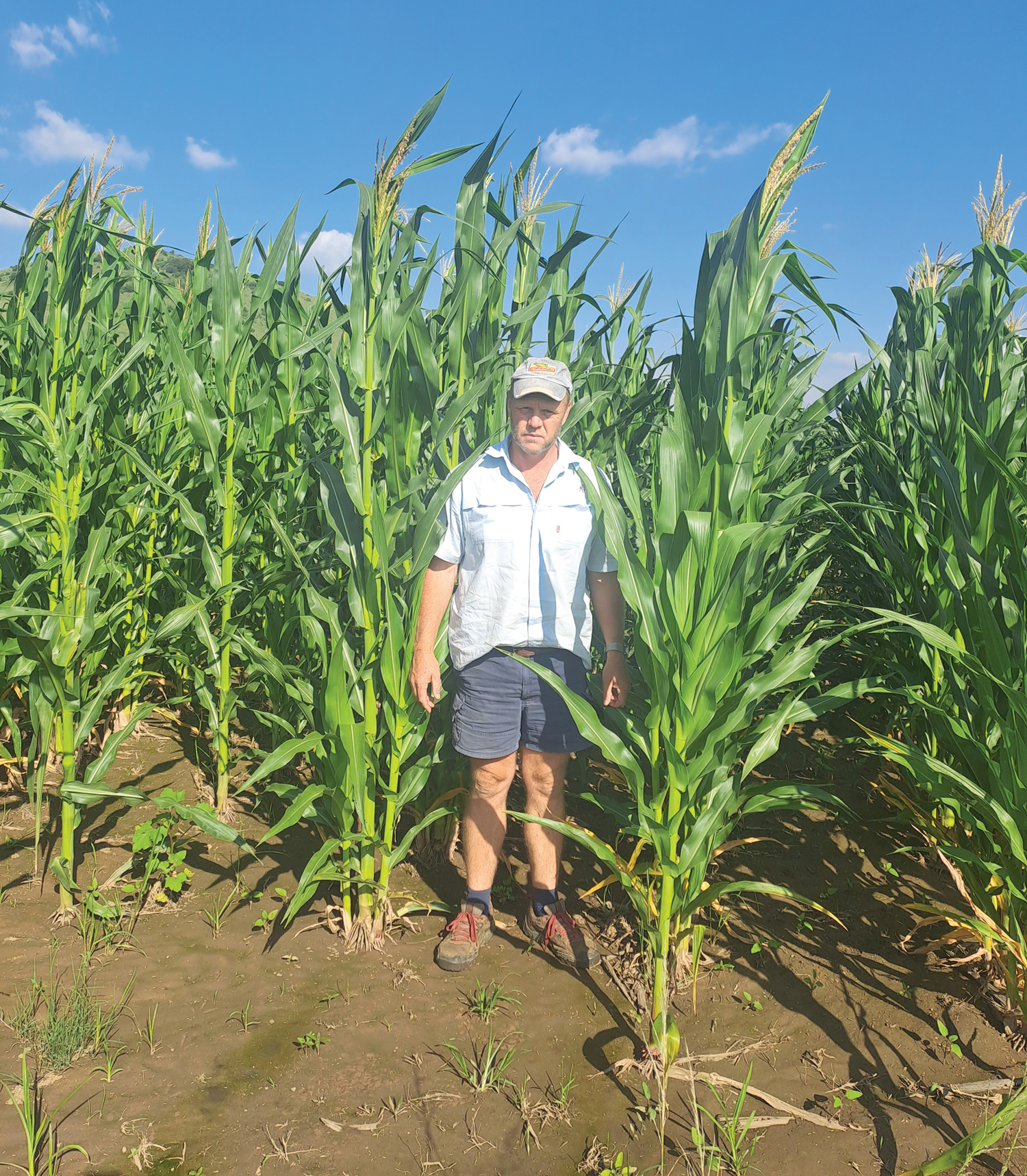
Regional development manager, Jacques Roux, in the maize field of a Free State farmer. The farmer’s maize recovered well after the heat and drought.
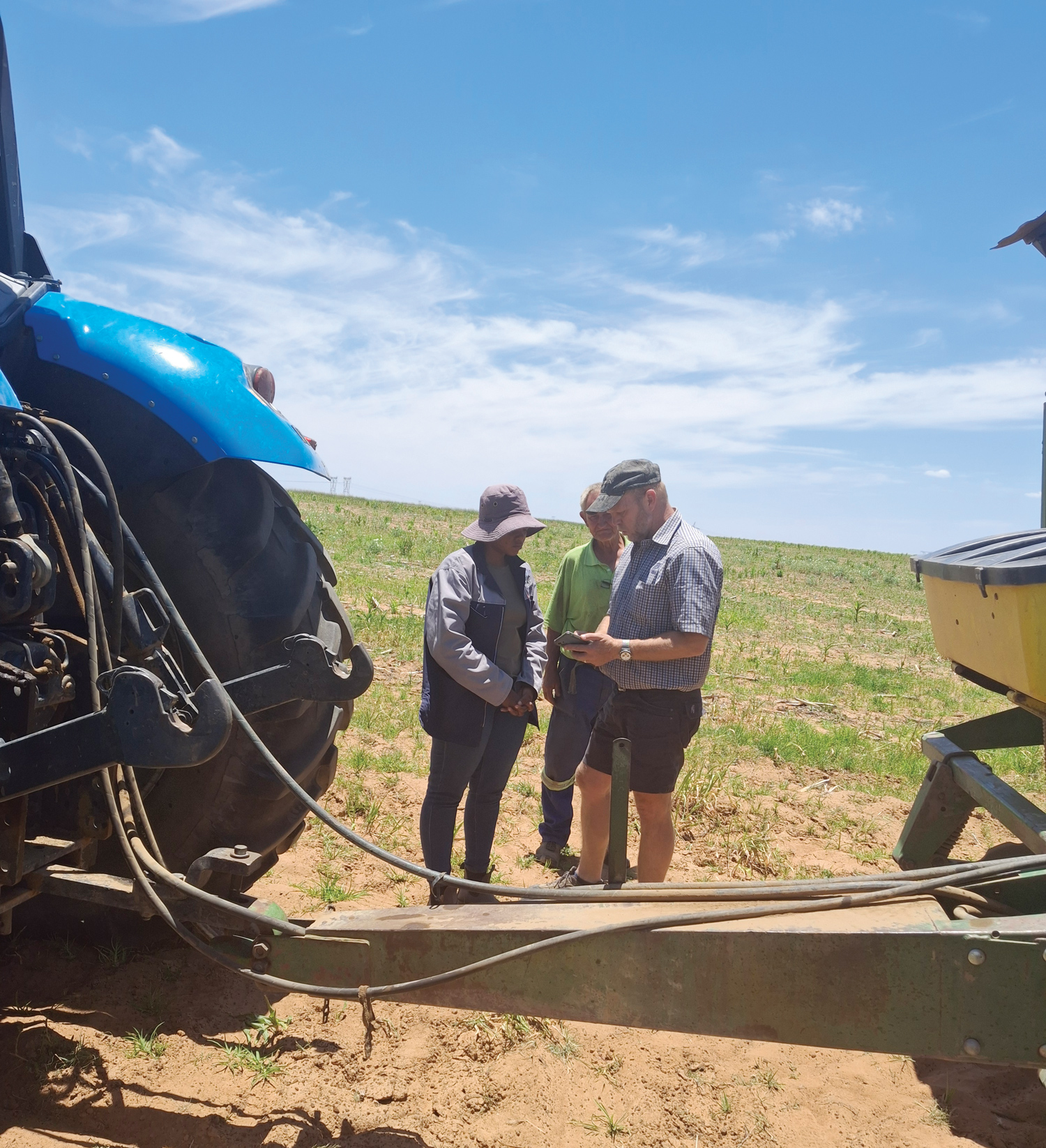
Malindi Joyce is one of the eleven farmers in the Free State who was visited. This farmer wants to plant 300 ha of white maize and 150 ha of sunflowers, but lacks the necessary knowledge as her husband passed away. She will be assisted by the PGP team to develop as a farmer.
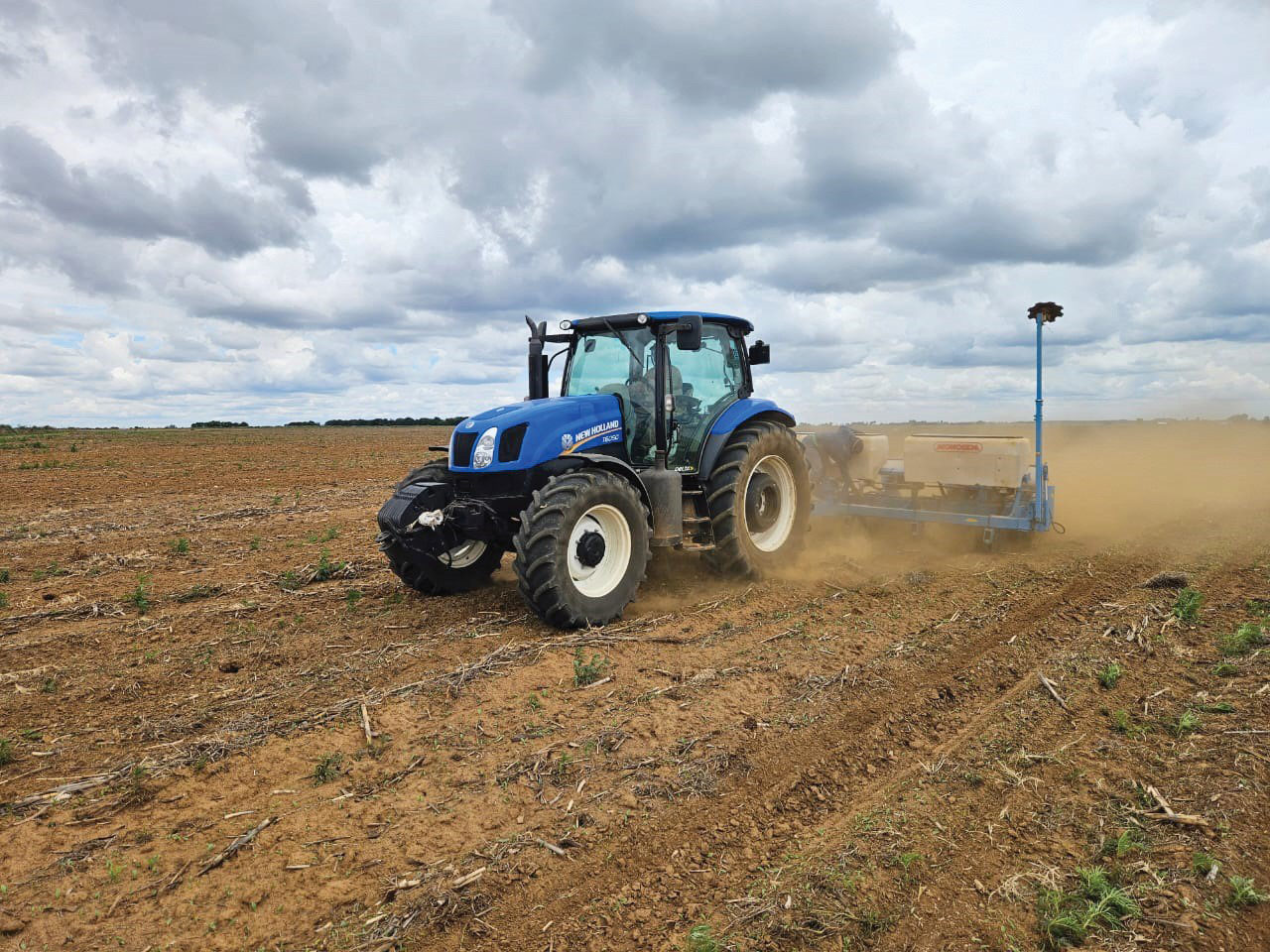
Lichtenburg saw twelve different farmers receiving visits. Du Toit van der Westhuizen, regional development manager, visited Mokgoetsi (Bokgotlo Ltd) Maleshoane Teresia, while he was busy planting. Arrangements were made for the chemicals to be delivered so that the farmer can spray as soon as possible.
Demonstration trials, or on-farm demonstrations, are a way to help farmers learn about new technologies, practices and products. They can be used to introduce farmers to new crop varieties, fertilisers and pesticides. They can also help farmers to learn about the best practices for soil preparation, weed and pest control and harvesting.
In the period from 1 December 2024 to 10 January, nine demonstration trials were planted: Kokstad planted two 1 ha blocks – one maize and one sunflower. In Dundee, one soybean trail plot of about 2 ha was planted, which is aimed at the more advanced farmers in the area, while subsistence farmers planted a maize block of less than 0,5 ha by hand.
The Mbombela regional office saw five trials planted:
Some of the trial planting action can be seen in the photographs below.
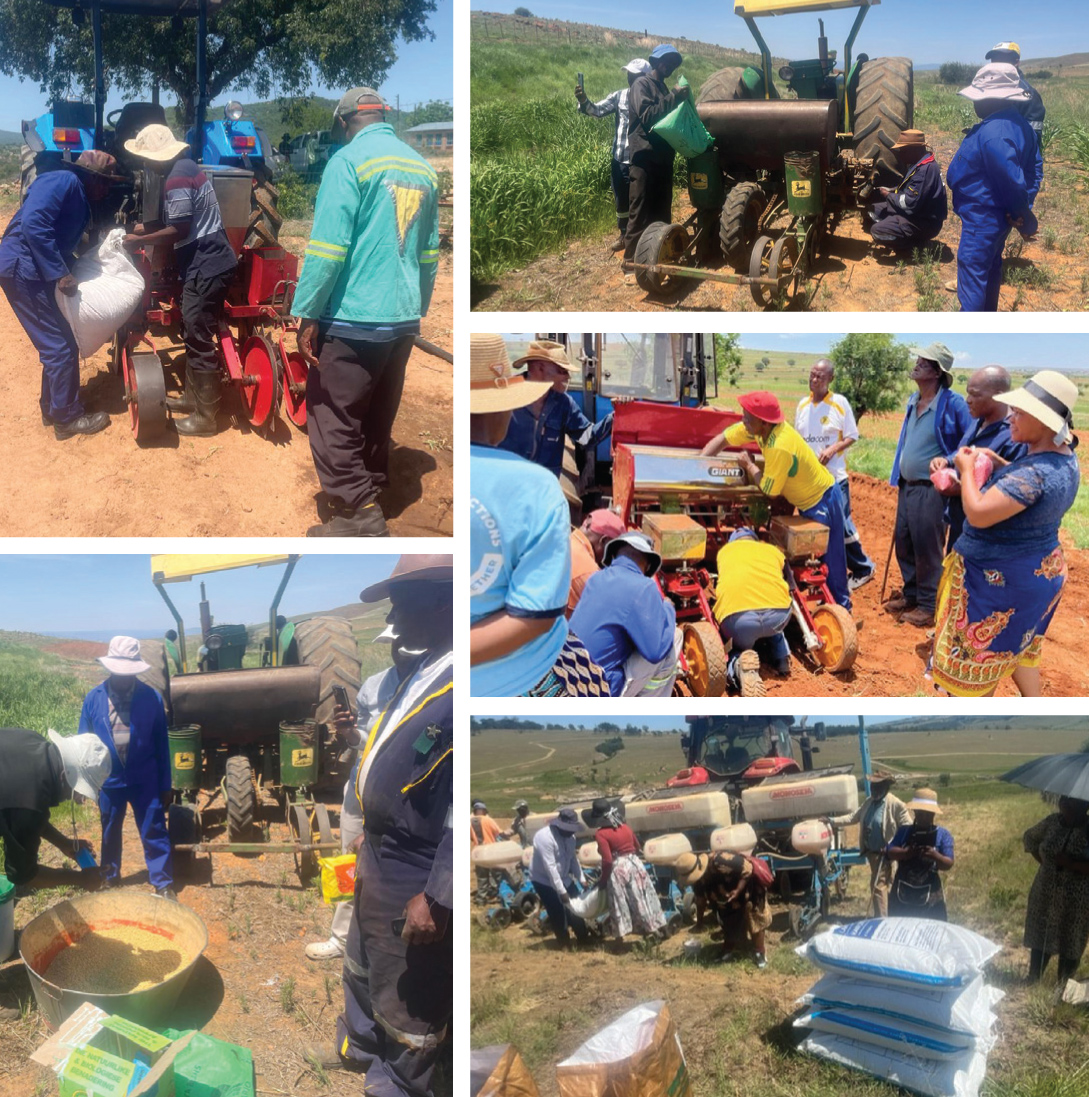
Publication: March 2025
Section: Pula/Imvula